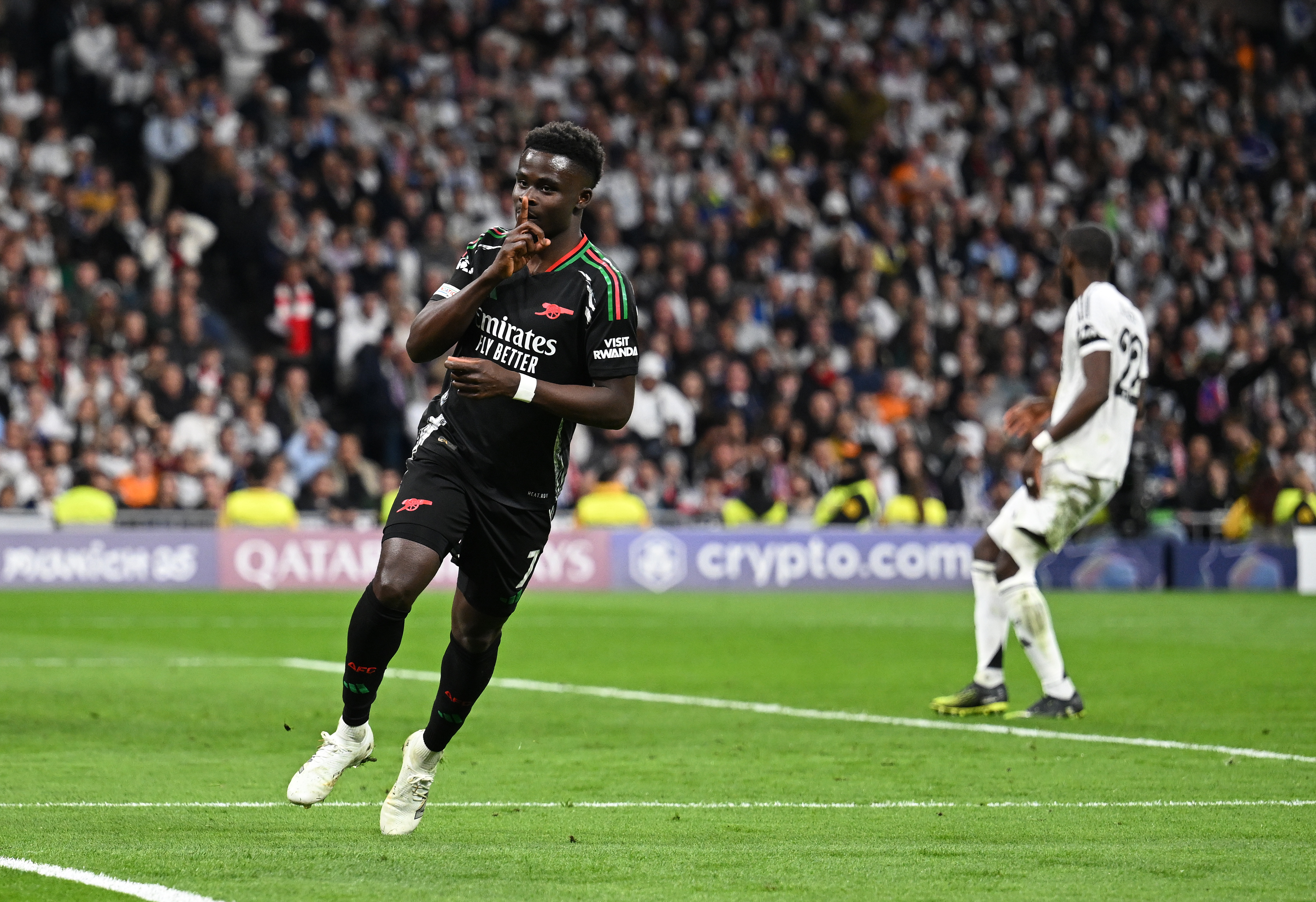Sadness, pain and humiliation in 'El Tigre' Falcao's sorry devolution to feeble house cat
The Colombian hitman arrived at Old Trafford to fanfare after completing a loan move from Monaco – but Jonathan Fadugba says the eight months since have been sad to follow...
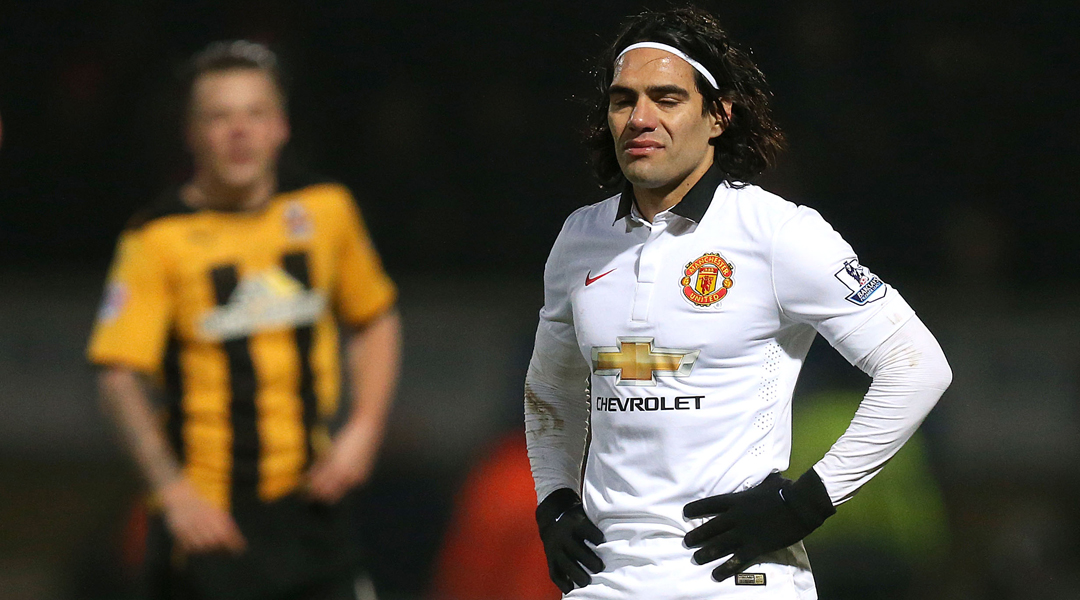
“Some say that having football, recognition and money is all you need to be satisfied. But a lot of people feel empty and have a void in their heart despite their fame and possessions.” – Radamel Falcao Garcia
In the 38th minute of Manchester United’s 1-0 defeat at Chelsea last Saturday, John Terry and Radamel Falcao went in for a challenge in midfield.
In times past, this would have been a gladiatorial tussle to make John Anderson proud. But Terry wins it easily, leaving his Colombian opponent in a crumpled heap on the floor with a robust challenge.
Perhaps it was a foul, perhaps not; either way it isn’t given. Chelsea win the ball and carve United open within seconds to score the game’s only goal through Eden Hazard.
We need to talk about Falcao. We need to talk about how awkward this is becoming. We need to discuss what’s become of one of the world’s greatest strikers. We need to assess why one of the most fearsome goal-grabbers of the last decade is getting brushed off the ball like a kid in the playground.
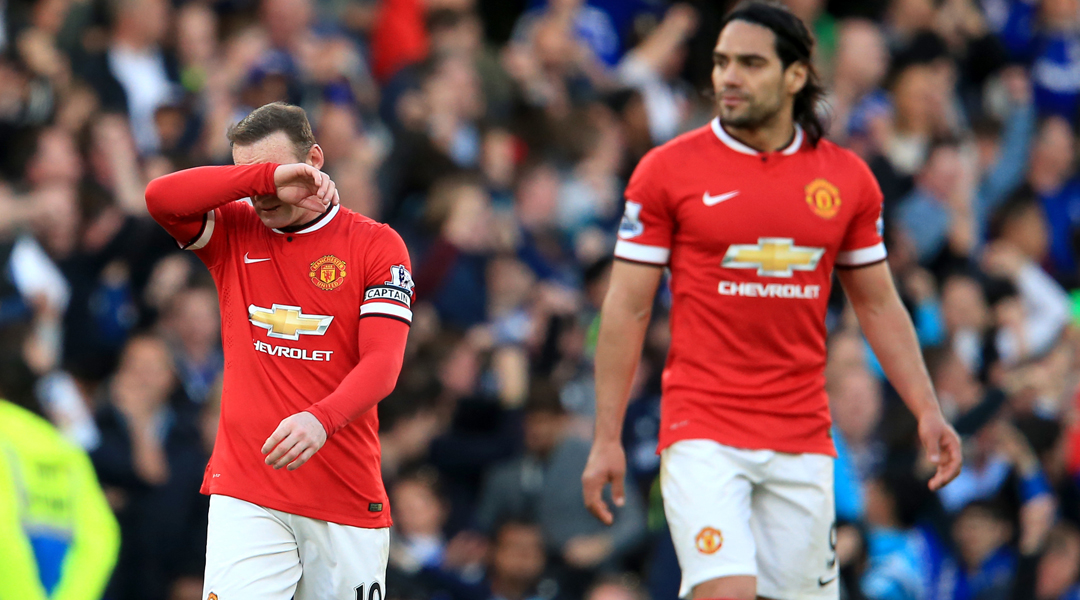
A lot of people feel empty and have a void in their heart despite their fame and possessions
We need to talk about how a player who scored 155 goals in 199 games in three countries has been reduced to a laughing stock; how the man menacingly known as ‘El Tigre’ – the tiger, for his razor-sharp predator’s instincts and a feline-like ability to pounce on chances – now resembles a feeble house cat.
There’s an uncomfortable reality where Falcao is concerned, and that is this: watching him play football, at least for the moment, is not a pleasant experience.
Get FourFourTwo Newsletter
The best features, fun and footballing quizzes, straight to your inbox every week.
Watching Falcao play football has become painful. Like Randy ‘The Ram’ Robinson, Mickey Rourke’s character in The Wrestler, he resembles an ageing professional in a world that’s passing him by. A former great, well past his prime, gradually and reluctantly coming to terms with the grim reality of injury and the passage of time, a high-profile hero deteriorating before our very eyes. A faded star.
Sorry slump
Falcao joined Manchester United last summer in a loan deal from AS Monaco that was met with elation at Old Trafford. After a season spent flailing haplessly around under David Moyes, here for the Red Devils was a globally renowned superstar to spearhead Louis van Gaal’s regeneration project. “Radamel is one of the most prolific goalscorers in the game,” the delighted Dutchman purred when the deal was completed for a £6 million loan fee last September. “His appearance-to-goal ratio speaks for itself and, when a player of this calibre becomes available, it is an opportunity not to be missed.” He was handed the No.9 shirt.
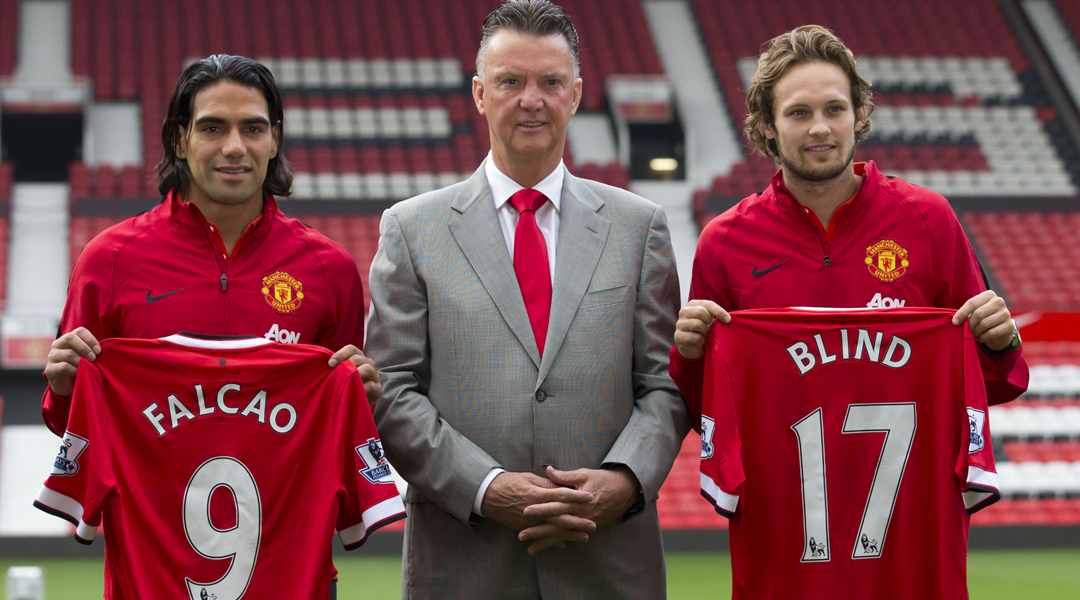
There were question marks about the Colombian striker’s general level of fitness when he moved to Old Trafford, after a serious injury had kept him out of the World Cup. But no one expected this.
Falcao has played 25 games for United this season and scored just four goals, level with Chris Smalling. In that time Falcao has gone from ‘an opportunity not to be missed’ to an asset not to be played, completing 90 minutes only six times this season. In those games – against Chelsea, Aston Villa, Spurs, QPR, West Ham and Cambridge – he’s scored one goal. He hasn’t had a shot on target in the league since January.
Alarming as it may be, a lack of goals is only part of the malaise. Any striker can experience a drought; even Harry Kane went two games without scoring. But it’s the manner of Falcao’s displays that is so concerning. The Colombian plays with a restraint of movement and physical discomfort that is sad to see.
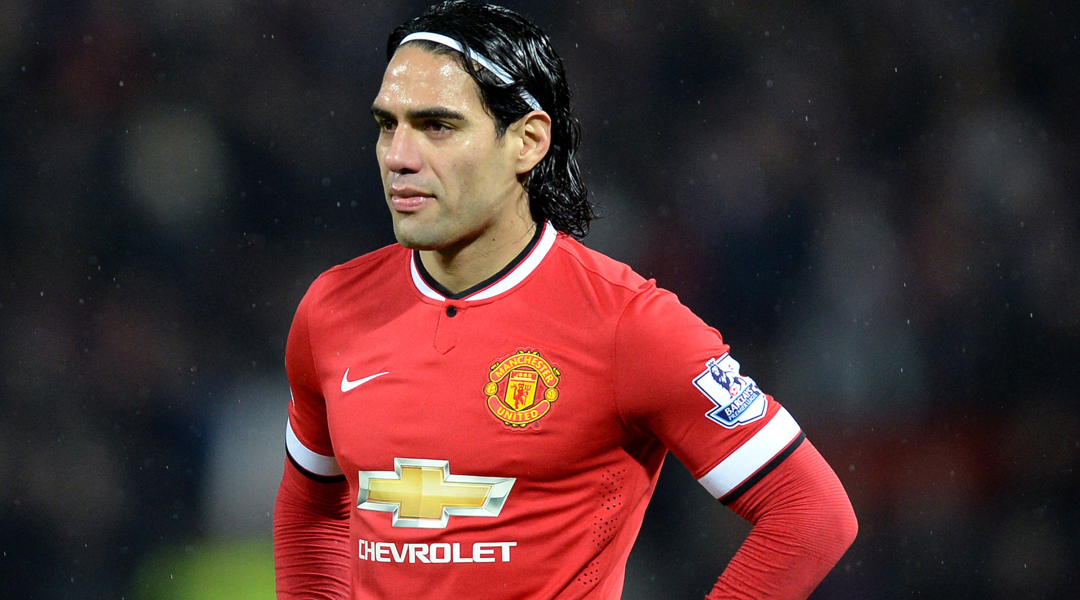
With only a month of the season remaining, his lack of sharpness is astounding. His touch is off. He’s lost that burst of acceleration that took him away from defenders. He looks weak on the ball.
In an attempt to restore some vague semblance of confidence, Van Gaal sent him to play for the under-21s against Spurs’ kids. Falcao failed to score and was taken off after 71 minutes. “It's a huge problem that we need to resolve,” his international manager Jose Pekerman commented during the international break in March. “This problem is as large as the sadness that Falcao is going through right now.”
The good old days
This isn’t the Falcao we know and love. The Falcao we know and love was a menace – a bundled-up fireball of raw intensity. “I was designed for football,” he once told the Colombian photojournalism magazine Cromos, and that application and dedication to his craft are among his defining characteristics.
This problem is as large as the sadness that Falcao is going through
From River Plate through Porto and Atletico Madrid, to watch Falcao play football was to experience a masterclass in the art of forward play. That cerebral style, the ability with both feet and in the air, that gentle and yet simultaneously imposing physique; this son of a defender had it all.
Falcao was the sharp point of a Porto side that went the 2010/11 season unbeaten, scoring 17 Europa League goals – six more than next-best Giuseppe Rossi – as Porto won it for the second time.
He scored the winner in the final, then did it all over again the following season at Atletico Madrid, bagging two absolute belters in one of the finest individual performances in a modern European final.
He helped Atletico Madrid end their hoodoo against eternal rivals Real Madrid, powering them to the Copa del Rey title in 2013. As of February, Falcao’s goals-per-game average in UEFA club competitions stood as the greatest in history: 38 in 42 games marginally exceeding the great Gerd Müller’s ratio – though, of course, critics will point out that only four of those strikes came in the Champions League.
So what happened? Sadly, Wednesday January 22, 2014 looks as though it may forever be remembered as the turning point in Falcao’s career, the day he snapped his left cruciate knee ligament playing for Monaco in a French Cup game against Monts D’Or Azergues Foot. The day his whole world collapsed and, as El Tiempo put it, a country mourned “as if a curse had befallen us, as if we had challenged divine forces”.
Falcao is a symbol of pride in Colombia and his injury was treated like a national disaster ahead of the 2014 World Cup, taking place in South America. The president even visited him in hospital.
“People don't see the bad times”
The most difficult part of Falcao’s demise is that this is a man who lives for football. Religion, family and football are the three pillars that drive him. Falcao is clearly an emotionally sensitive character with an almost ethereal presence about him. “I try to believe in human beings but it’s difficult,” he told Cromos. When the Spanish TV show Punto Pelota streamed images of him as a child he broke down crying. “Our world is not real,” he blubbed. “Football is strange. People don't see the bad times.”
Emotion has got the better of him on several occasions on screen: while recuperating from his knee injury he met a 12-year-old kid overcome with joy at meeting his childhood hero. Informed by the child that God would help his knee recover, Falcao breaks down in tears in a video that’s quite uncomfortable to watch.
Part of his motivation for joining Monaco in 2013, as he tells it, was to prepare for the World Cup. This soft side to the kid from Santa Marta only makes it harder to watch him struggling now. When you see him pushed off the ball by Spurs’ teenagers, you wince because it’s like he doesn’t deserve the ignominy.
Some point the blame at United boss Van Gaal for ostracising Falcao, for stripping the striker of all confidence. The prospect of the joint-top scorer in Colombian history being sent to play with the Red Devils' reserves was taken like an act of treason back in Falcao’s homeland.
“I read that it was humiliating to put Falcao in the reserves,” said Van Gaal. “But I don’t think so.” No matter how hard you try to defend the 29-year-old right now, though, he isn’t good enough for a place in United’s team. He may never be. Blaming Van Gaal would be unfair. The slump wasn’t made in Manchester: after a promising start at Monaco, Falcao scored two goals in 10 games and was criticised, and that was pre-injury.
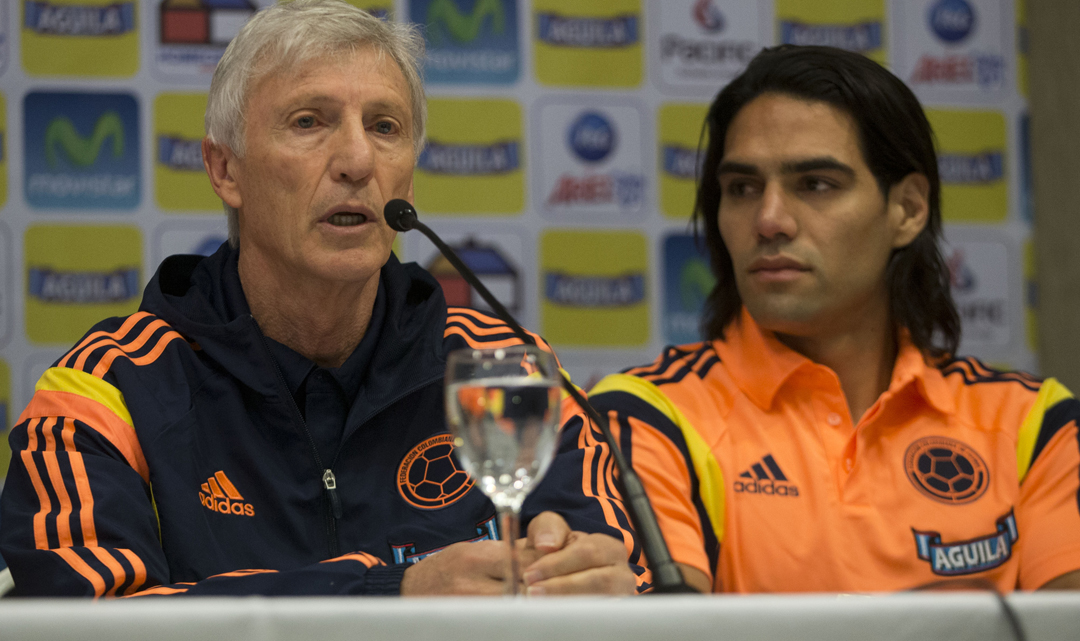
Unknown ending
You can’t help but hope there’s a happy ending for Falcao, whether at United – where his £43.5m buyout clause looks less justifiable by the day – or elsewhere. In a sense he’s a poster boy for the perils of third-party ownership, a man who’s never quite appeared to have his destiny in his own hands, his almost allergic avoidance of the Champions League a testament to the idea. Asked by Cromos what one thing he would change about football, Falcao brushed the subject to one side. “Football is contaminated,” he replied.
Can the Colombian ever rediscover the levels that once made Monaco fork out £50m for his services? Will he justify his reported £265,000+ per week wages at Old Trafford? Is there respite for Radamel? Many look to the majesty of the Falcao of old to draw confidence that he will surely return soon.
“I know Falcao’s strengths, his mentality and his fighting spirit, and I’ve never doubted that he’ll come out the other side,” Colombia coach Pekerman claims, with the Copa America on the horizon.
“He has not had a great season,” Monaco coach Leonardo Jardim has said. “But I’m sure he is capable of returning to the level he was in the past. I am convinced of that.”
Everton vs Man United LIVE ANALYSIS with Stats Zone
